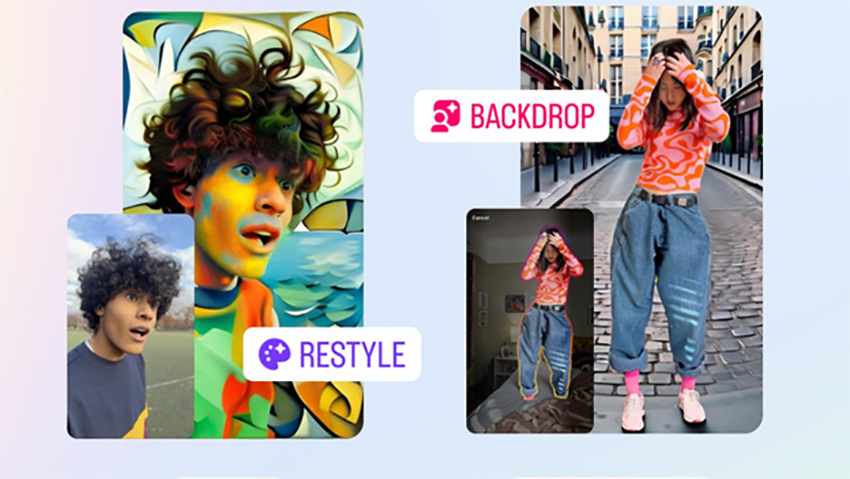Meta Apps to Gain New AI Features: Significant Upgrade or Gimmicks?
At the Meta Connect event in Menlo Park, Mark Zuckerberg announced the deployment of artificial intelligence technology features for its leading apps, namely Facebook, Instagram, and WhatsApp. The company behind the world’s biggest social media site proudly integrates AI into its products, highlighting the inevitability of this technology.
Meta’s apps are among the world’s most popular, with Facebook and Instagram consistently in the top 5 and Whatsapp in the top 10. This news means more users will be experiencing artificial intelligence, especially in the social media space.
However, the big question is whether or not Facebook’s AI features are set to offer new functions that are relevant to users. Numerous apps that claim to offer AI features have emerged over the past months, but only a few of them appear to be game-changers. Even the wildly popular ChatGPT has already started losing users.
Meta’s AI features
Zuckerberg’s announcement highlighted four new AI functions. These are Meta AI, AI-powered editing tools for Instagram, Emu, and Stickers. These new features have had some fair amount of media coverage, although the hype around them may have been minimal.
Meta AI Assistant – This is dubbed as the “most useful” and “most powerful” new feature announced. Similar to ChatGPT and Google’s Bard, it acts as a human assistant that responds to questions or inputs with natural language processing. However, unlike ChatGPT that has knowledge limitations, Meta’s AI can address questions related to current developments with the help of the Bing search engine, similar to Bing Chat.
Users can expect Meta AI to be part of Facebook Messenger, WhatsApp, and Instagram. It will also be a native feature of the Quest 3 and Ray-Ban’s Meta smartglasses. Meta AI comes with the ability to see images and analyze visual data.
Although Meta AI uses Bing for web search, it is different from the GPT 4-powered Bing AI. It does not rely on GPT. Instead, it uses LLaMA 2, an open source large language model. LLaMA 2 is reportedly “faster and more efficient” than GPT-4. However, the latter has the advantage when it comes to data, context length, modalities, and parameters.
AI-powered Instagram tools – Instagram users can expect two new features on the app, namely Restyle and Backdrop. These are AI tools that are set to boost AI-generated imagery on Meta’s second most popular app.
Restyle is essentially a post-production filter creator. It can transform photos into an extensive variety of looks through text prompts. Users simply have to describe a visual style such as “pastel colors” or “Dali painting” to morph a photo into something interesting. It can also turn sets of images into artistic collages.
Backdrop, on the other hand, is capable of generating new images to be added to an existing image. It can change background images, morph parts of a photo, or add new images such as kittens or flowers to a rather plain photo.
EMU – EMU stands for Expressive Media Universe, which is an image-generating AI tool. It can generate complex images from scratch, using text prompts. It is comparable to Midjourney, Runway AI, and Jasper Art, but more intuitive to use for those who are already using Meta apps. EMU takes a few minutes to generate an AI image based on the user-supplied keywords, around the same time it takes for similar apps to create images.
Custom sticker creation – Stickers may be mundane, but many continue to use them heavily. Meta is trying to give stickers an AI refresh by providing greater customizability. With artificial intelligence, users can generate unique and sophisticated stickers through text prompts. It allows users to create virtually anything for whatever purpose.
Riding the AI bandwagon
Truth be told, Meta is rather late in the AI party. It has taken them several months to finally introduce Meta AI, which is not yet available to all Meta users worldwide. The new features are expected to be released to different regions incrementally.
The focused allocation of time and resources in building the metaverse could be one of the biggest reasons why Meta is a bit late in offering its own AI products. However, Zuckerberg says that they are not necessarily choosing one or the other. The company is pursuing both the metaverse and AI at the same time, as Zuckerberg said in Meta’s quarterly earnings call.
Anyway, on the question as to whether Meta’s AI offerings are significant upgrades or mere gimmicks, the answer is arguably the former. They indeed represent significant advancements in the context of Meta’s lack of AI features in their leading apps and the growing commonplaceness of artificial intelligence.
However, Meta’s AI features are far from being game-changers. They might intrigue some to give the features a try, but they are not going to be widely talked about in the same way ChatGPT became talk of the town for weeks.


